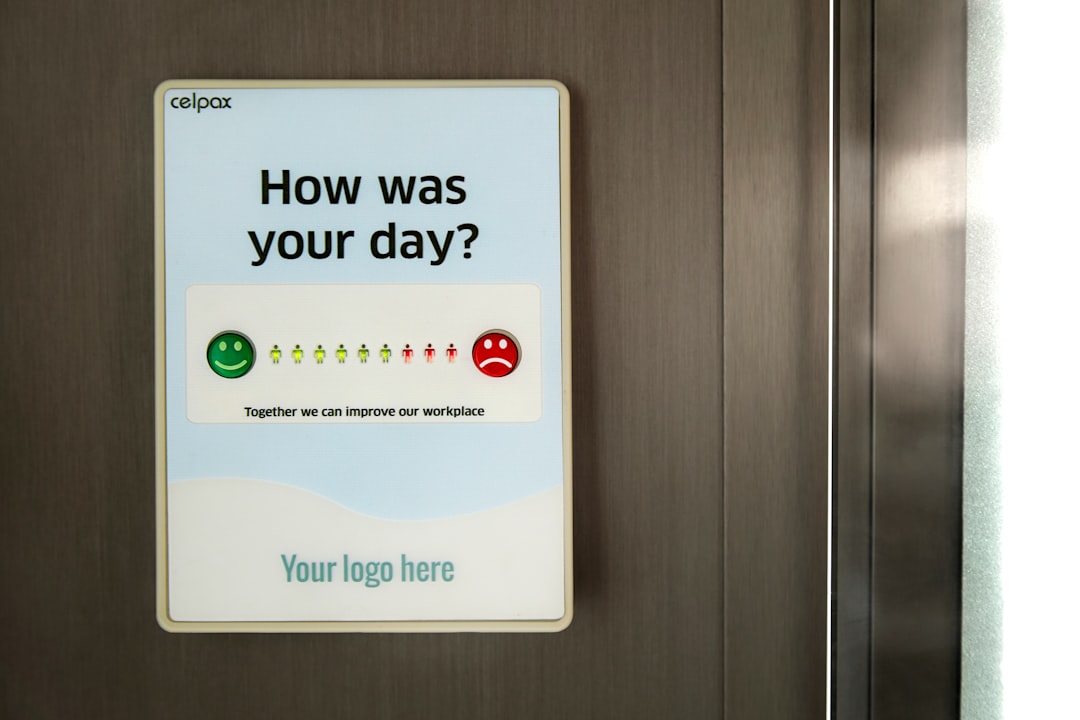In the modern business landscape, efficient communication is crucial for organizational success. Technological advancements have provided businesses with a diverse range of communication tools, including email, instant messaging, video conferencing, and collaborative platforms. These technologies enable real-time communication and collaboration among employees, regardless of their physical location.
This enhancement in internal communication extends to external stakeholders, such as customers, suppliers, and partners. Streamlined communication facilitates rapid and accurate information sharing, leading to improved decision-making processes and increased overall efficiency. Effective communication also plays a vital role in dismantling organizational silos.
When different departments and teams can communicate seamlessly, it promotes a collaborative and team-oriented culture. This environment fosters innovation and creativity by allowing employees with diverse backgrounds and expertise to easily exchange ideas and work collectively towards shared objectives. Moreover, streamlined communication can reduce misunderstandings and conflicts by promoting clear and concise information exchange, thereby minimizing the risk of misinterpretation.
By investing in advanced communication tools and strategies, businesses can cultivate a more unified and efficient work environment.
Key Takeaways
- Streamlined Communication: Using the latest technology can help streamline communication within the organization, leading to better collaboration and faster decision-making.
- Enhanced Customer Relationship Management: Implementing advanced CRM systems can help businesses better understand and serve their customers, leading to improved customer satisfaction and loyalty.
- Increased Efficiency and Productivity: Utilizing modern tools and software can help automate tasks, reduce manual errors, and increase overall efficiency and productivity.
- Improved Data Management: Advanced data management systems can help businesses organize and analyze data more effectively, leading to better insights and informed decision-making.
- Personalized Marketing Campaigns: Leveraging technology can help businesses create personalized marketing campaigns that resonate with individual customers, leading to higher engagement and conversion rates.
- Real-time Customer Engagement: Utilizing real-time communication channels can help businesses engage with customers instantly, leading to better customer satisfaction and retention.
- Seamless Integration with Other Systems: Implementing technology that seamlessly integrates with other systems can help businesses streamline operations and improve overall performance.
Enhanced Customer Relationship Management
Unlocking Valuable Insights
By utilizing CRM software, businesses can gain valuable insights into customer behavior, preferences, and purchasing patterns. This data can then be used to tailor marketing campaigns, improve customer service, and ultimately build stronger relationships with customers.
Streamlining Processes and Enhancing Personalization
Additionally, CRM software can also automate various processes such as lead management, sales tracking, and customer support, which can free up valuable time for employees to focus on more strategic tasks. Moreover, enhanced CRM strategies also enable businesses to provide a more personalized experience for their customers. By leveraging data analytics and automation, businesses can deliver targeted and relevant content to their customers, leading to higher engagement and satisfaction.
A Holistic View of the Customer Journey
Furthermore, advanced CRM tools also enable businesses to track customer interactions across various touchpoints, such as social media, email, and website visits. This holistic view of the customer journey can help businesses in understanding their customers better and in turn, provide a more tailored and effective customer experience.
Increased Efficiency and Productivity

With the help of advanced technology, businesses can significantly increase their efficiency and productivity. Automation tools, artificial intelligence, and machine learning algorithms can help in streamlining repetitive tasks, reducing human error, and improving overall workflow. For example, businesses can automate data entry processes, invoice generation, inventory management, and other routine tasks, which can save time and resources.
This allows employees to focus on more strategic and value-added activities that can drive business growth. Furthermore, advanced technology also enables employees to collaborate more effectively and work remotely without any hindrance. Cloud-based collaboration platforms, project management tools, and video conferencing software allow employees to work together seamlessly regardless of their physical location.
This not only improves productivity but also provides flexibility for employees to work in a way that suits them best. Additionally, advanced technology also provides real-time insights and analytics that can help in making informed decisions quickly. By leveraging data-driven insights, businesses can identify areas for improvement, optimize processes, and make strategic decisions that can lead to increased efficiency and productivity.
Improved Data Management
In today’s digital age, businesses are inundated with vast amounts of data from various sources such as customer interactions, sales transactions, website visits, social media engagement, and more. Advanced technology has made it possible for businesses to effectively manage and leverage this data to gain valuable insights and make informed decisions. With the help of data management tools such as databases, data warehouses, and data analytics software, businesses can store, organize, and analyze large volumes of data efficiently.
Moreover, advanced technology also enables businesses to ensure the security and integrity of their data. With the increasing threat of cyber-attacks and data breaches, businesses need robust data management systems that can protect sensitive information from unauthorized access. This includes implementing encryption techniques, access controls, regular backups, and other security measures to safeguard valuable data.
Additionally, advanced data management tools also enable businesses to comply with data privacy regulations such as GDPR and CCPA by providing mechanisms for data governance and consent management.
Personalized Marketing Campaigns
One of the key benefits of advanced technology for businesses is the ability to create personalized marketing campaigns. With the help of data analytics and automation tools, businesses can segment their audience based on various criteria such as demographics, behavior, interests, and purchase history. This allows businesses to deliver targeted and relevant content to their customers, leading to higher engagement and conversion rates.
Personalized marketing campaigns can take various forms such as personalized email marketing, dynamic website content, targeted social media ads, and personalized product recommendations. Furthermore, advanced technology also enables businesses to track the effectiveness of their marketing campaigns in real-time. By leveraging analytics tools, businesses can measure key performance indicators such as click-through rates, conversion rates, and return on investment.
This allows businesses to optimize their marketing strategies based on real-time insights and make data-driven decisions that can lead to better results. Additionally, personalized marketing campaigns also help in building brand loyalty and increasing customer retention rates as customers are more likely to engage with content that is tailored to their specific needs and interests.
Real-time Customer Engagement

Enhanced Customer Experience
Advanced technology has revolutionized the way businesses engage with their customers by enabling real-time interactions across various channels such as social media, live chat, email, and mobile apps. Real-time customer engagement allows businesses to respond to customer inquiries promptly, provide instant support, and address customer concerns in a timely manner. This not only improves customer satisfaction but also helps in building a positive brand image.
Valuable Insights into Customer Behavior
Moreover, real-time customer engagement also provides businesses with valuable insights into customer preferences and behavior. By monitoring customer interactions in real-time, businesses can gain a better understanding of what their customers are looking for and how they are engaging with their brand. This information can then be used to tailor products and services to better meet customer needs and expectations.
Immediate Feedback for Improvement
Additionally, real-time customer engagement also enables businesses to gather immediate feedback from customers which can be used to improve products or services quickly.
Seamless Integration with Other Systems
Advanced technology allows businesses to seamlessly integrate various systems and applications to create a cohesive and efficient IT infrastructure. For example, businesses can integrate their CRM system with their marketing automation platform to ensure that customer data is synchronized across both systems. This enables businesses to deliver personalized marketing campaigns based on real-time customer data stored in the CRM system.
Additionally, seamless integration with other systems such as accounting software, inventory management systems, and e-commerce platforms can help in automating various processes and ensuring that data is consistent across different departments. Furthermore, seamless integration with other systems also enables businesses to leverage the power of artificial intelligence and machine learning algorithms. For example, by integrating AI-powered chatbots with customer support systems, businesses can provide instant responses to customer inquiries without human intervention.
This not only improves customer satisfaction but also frees up valuable time for employees to focus on more complex tasks. Additionally, seamless integration with other systems also provides a more holistic view of business operations by consolidating data from different sources into a single platform for better decision-making. In conclusion, advanced technology has transformed the way businesses communicate internally and externally while enhancing customer relationship management through personalized marketing campaigns and real-time engagement.
It has also increased efficiency through improved data management systems while seamlessly integrating with other systems for a cohesive IT infrastructure. These advancements have become essential for businesses looking to stay competitive in today’s fast-paced digital world.
If you’re interested in learning more about how SMS-iT CRM can revolutionize your customer relationship management, check out this article on SMS-iT-tools/”>Revolutionize Your Customer Relationship Management with SMS-iT Tools. This article delves into the various ways in which SMS-iT CRM solutions can streamline and enhance your customer relationships, providing valuable insights and tips for maximizing the benefits of this powerful tool.
FAQs
What is SMS-iT CRM?
SMS-iT CRM is a customer relationship management system that allows businesses to manage their interactions and relationships with current and potential customers. It utilizes SMS messaging as a key communication tool to engage with customers and track their interactions.
What are the key benefits of using SMS-iT CRM?
Some key benefits of using SMS-iT CRM include improved customer engagement, increased efficiency in communication, better tracking of customer interactions, and the ability to personalize and target messaging to specific customer segments.
How does SMS-iT CRM improve customer engagement?
SMS-iT CRM allows businesses to send personalized and targeted messages to customers, leading to higher engagement and response rates. It also enables businesses to automate follow-up messages and reminders, keeping customers engaged throughout the customer journey.
How does SMS-iT CRM increase communication efficiency?
By utilizing SMS messaging, SMS-iT CRM allows businesses to reach customers directly on their mobile devices, leading to faster and more efficient communication. It also provides tools for managing and organizing customer communication, leading to better overall efficiency.
How does SMS-iT CRM track customer interactions?
SMS-iT CRM provides tools for tracking and recording all customer interactions, including SMS messages, calls, and emails. This allows businesses to have a comprehensive view of their customer relationships and interactions, leading to better customer management and follow-up.
How does SMS-iT CRM enable personalized and targeted messaging?
SMS-iT CRM allows businesses to segment their customer base and send personalized messages to specific customer groups. This enables businesses to tailor their messaging to the specific needs and preferences of different customer segments, leading to higher engagement and response rates.







